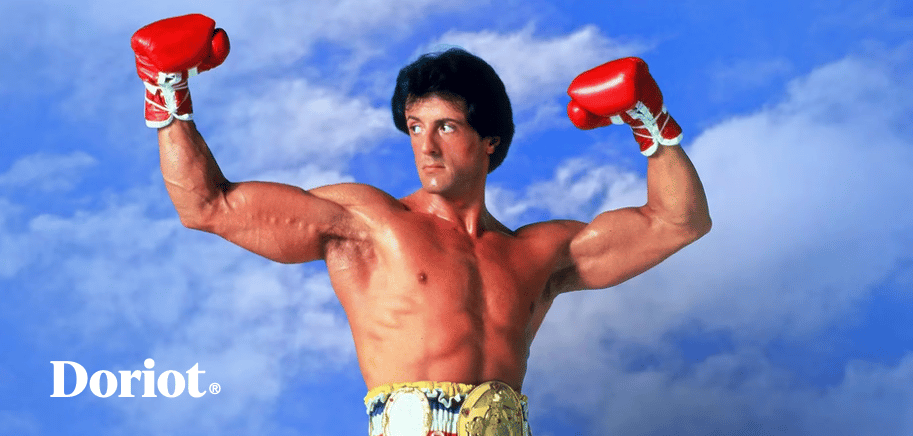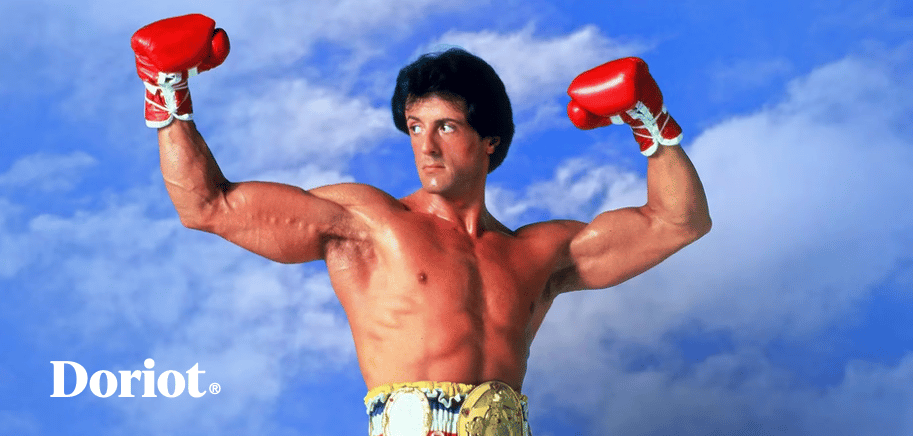- Democratize Venture
- Posts
- Doriot is heading to Washington DC
Doriot is heading to Washington DC
(And dealing with rejection)

Delivered June 20, 2025 @ 5:00pm ET
Weather in Bloomington, IN - Partly Sunny, 290 C / 840 F
Table of Contents
My name is Gerry Hays, Founder & CEO of Doriot® (pronounced “Doe-ree-oh”), a movement to break open the gates of venture and expand innovation and wealth beyond an elite few. Democratize Venture is my platform to explore the venture markets and share the insights, strategies, and frameworks I bring into the classroom. It’s where education meets execution—for anyone ready to play the startup game.

Doriot® product innovations 🧧
VentureStaking™ - a zero-to-one innovation in venture investing — designed to put the smallest investors on the same playing field as the largest.
FantasyStartup® - #1 global startup investing simulation with more than 14,000 downloads worldwide.
QAI - Qualified Accredited Investor™ - An exam and certification program for anyone serious about launching a venture-backed company or investing in high-growth startups.
Democratize Venture Corner: Doriot is heading to the US Capital
Next Tuesday, from 2–3pm ET, I’ll be speaking on a panel with the SEC Office of the Advocate for Small Business Capital Formation and the Small Business & Entrepreneurship Council, hosted by the Cato Institute in Washington, D.C.
For those unfamiliar, Cato is a leading libertarian think tank focused on advancing individual liberty, limited government, free markets, and peace through research and public dialogue.
I don’t want to oversell it—but this is a big deal.
For the past 7 years, we’ve been leading the democratization of venture through education (Fantasy Startup, QAI – Qualified Accredited Investor). But VentureStaking™ is what’s drawing serious attention. This will be our first opportunity to bring it into a Public Policy forum on Capital Formation.
Here’s what I’ll be emphasizing:
VentureStaking™ is meritocratic. It’s a response to the Silicon Valley model that prioritizes money and connections over ability and ideas.
A VentureStake™ is not an Investment Contract. It doesn’t fall under the Howey Test. It’s a Social Contract.
Reputation is the currency. Not legal enforcement. Not compliance hoops. Just accountability to your community.
Livestream link here → Register
Mindset Corner: Dealing with Rejection

Sylvester Stallone (Rocky III)
One of the most important things I tell my students about entrepreneurship is this: the most vital thing you can prepare for is rejection.
Not product-market fit. Not your pitch deck. Rejection.
It’s the silent killer. And I don’t think people fear failure as much as they fear rejection. There’s science behind this—studies show rejection registers in the brain the same way physical pain does. It cuts deep because it taps into our core need: to be accepted.
In the world of venture, the “acceptance” we’re often looking for is from investors—people who can greenlight our vision. But it’s not just about capital. It’s about feeling validated. Believed in. Welcomed into that inner circle.
But rejection doesn’t just live in pitch meetings. It’s everywhere. You want to stand out from the crowd, but you still want the crowd to embrace you. That tension—that contradiction—is the emotional battlefield of building something new. People may not accept your ideas simply because they’re different. And sometimes, they don’t want you to win because it challenges their own comfort zone.
Whatever the reasons, every entrepreneur will face this. The question isn’t how to avoid it—it’s how to survive it.
Here’s a great quote by Sylvester Stallone:
"I take rejection as someone blowing a bugle in my ear to wake me up and get going, rather than retreat."
Powerful, right? Because that’s what rejection should be: a bugle. A signal. A spark.
But if I’m being honest rejection can feel like a funeral.
You see, sometimes I play this dumb mental game. I build up something in my head—a meeting, a partnership, an outcome—and when it doesn’t happen, it feels devastating. Like I lost something real. But the truth is, I didn’t lose what was—I lost what I imagined it could be. And that’s a uniquely painful kind of grief.
To this day, no matter how much progress I make, there are times where I feel like the whole world is saying no. Days where I sit in the mud of that feeling, wondering if I’m wrong for believing in this thing at all.
But again—rejection is part of the process of breaking out. You can’t grow without putting your ideas into the world. You need goals, you need vision—but then you have to socialize those ideas, test them, see how they land.
And what’s helped me tremendously is changing how I see myself. I’ve stopped thinking of myself strictly as an entrepreneur. I’ve started thinking of myself as a scientist.
Because a scientist doesn’t jump to conclusions. A scientist forms a hypothesis, runs the experiment, collects the data. Only then do they evaluate whether the idea holds up.
But as entrepreneurs, we often flip that. We start with a conclusion—"this will work, this will land, this is the answer"—and then go out trying to get the world to agree with us. That mindset leaves us wide open to the emotional sting of rejection, because when someone says no, it feels like they’re rejecting us, not just the idea.
So here’s the shift:
Rejection = Reality Check, Not a Red Light.
Every “no” is data.
Every “not now” is a variable.
Every “maybe” is a chance to refine.
My advice? Don’t seek validation—seek information. Treat every rejection as input, not judgment. It doesn’t define you. It shapes you. All of this to say that the more you are able to separate your emotions from the business of building something, the more likely you’ll move on from rejections and welcome the
Wishing you a focused and fulfilling weekend,
– Gerry ([email protected])
Reply